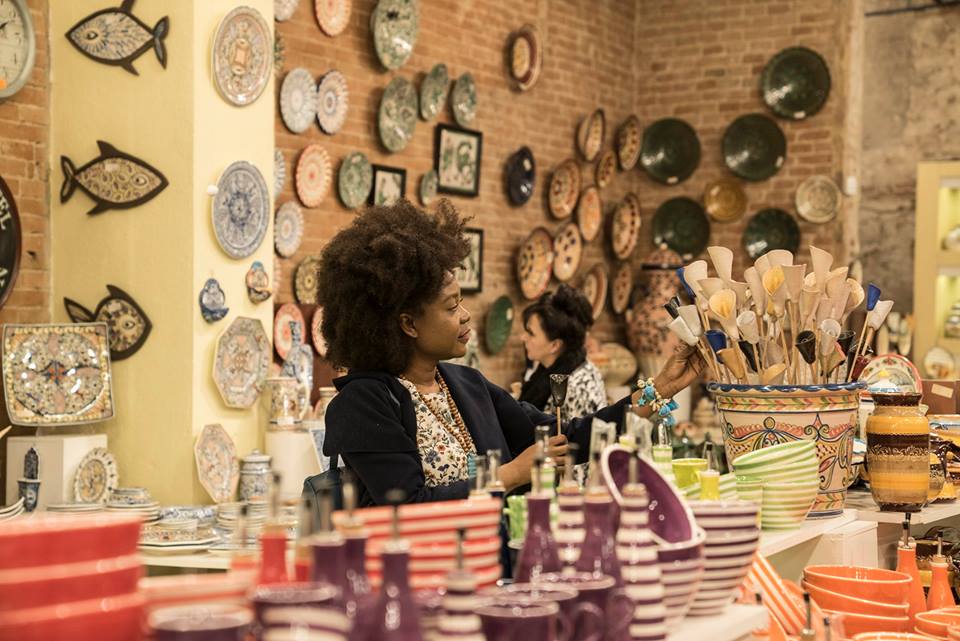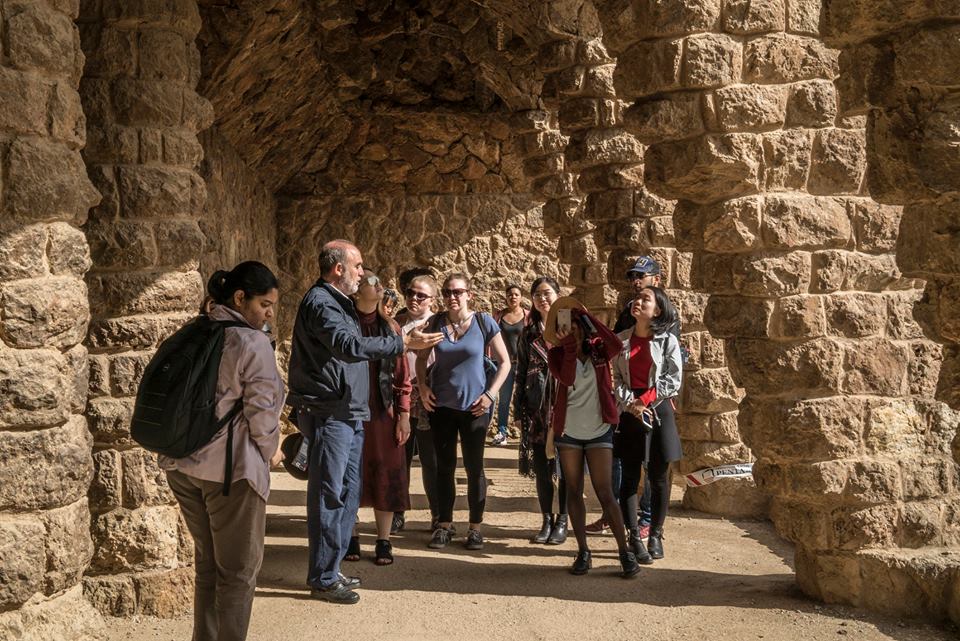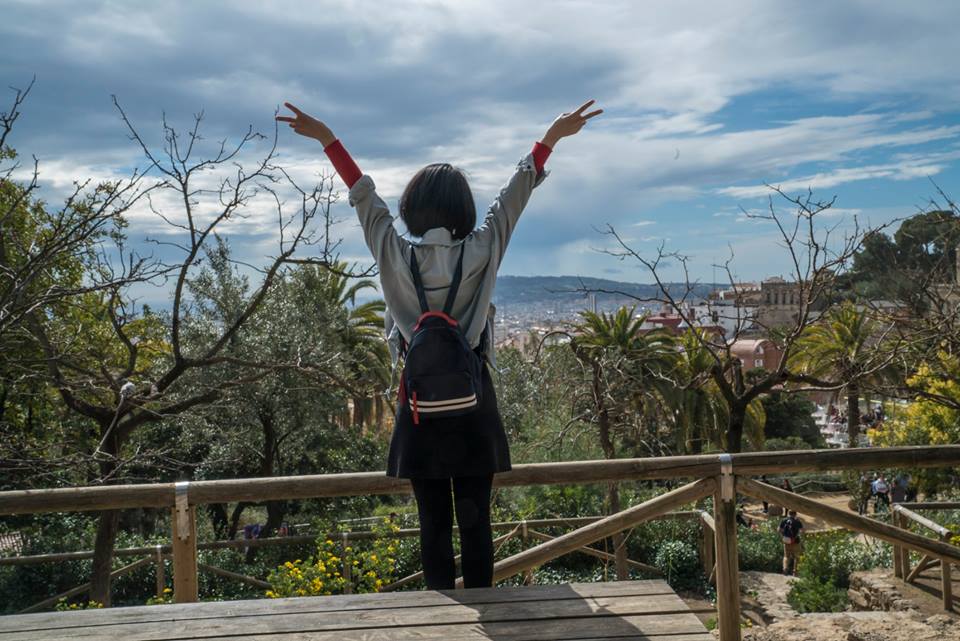“Blessed are the curious for they shall have adventures.” – Lovelle Drachman
One of the things I was looking forward to when I moved to London for my studies was the opportunity to travel, not just in the United Kingdom but around Europe as well. However, as an international student on a scholarship, my funds were limited and I had to learn (through trial and error) how to satiate my wanderlust on a tight budget. I’ve compiled this short guide so you can avoid the mistakes I made and make the most of your trips.
- Adapter. When you travel outside the UK you will need to carry a 2 round pronged plug for the European power outlets. Get one before you travel or you could end up buying it for higher price when your phone is out of power and desperation hits.
- Bus or train pass. If you’re planning to be in one city for a few days, consider a daily or weekly pass to make the most of your budget.
- Cash or card? Although using a card may seem convenient, carry some cash to avoid transaction fees. Use your card sparingly to cover major expenses such as flight or accommodation reservations and keep the cash for small purchases at cafes or gift shops. Once you have run out of cash, resist the temptation to withdraw more and this will help you stick to your budget.

- Documents. When you travel make sure you have all necessary documents on you – your passport (you wouldn’t believe how many people forget their passports), your residence card (if you are an international student), insurance certificate and any other important documents. The last thing you want is to miss a flight or find out that you cannot re-enter the UK because you don’t have the right documents.
- Essentials. Make sure you have the basics with you, a towel, toothbrush, toothpaste. Hiring these is just an additional cost you can avoid.
- Food. Be sure to try out the local dishes wherever you go. I mean, what’s the point of travelling to Valencia to eat from McDonald’s? Ask the locals and find the best places for good food. There’s a great difference when you have paella in Spain than when you have it anywhere else in the world. Unless you’re set on having a three course meal, steer away from fancy hotels and restaurants.
- Go off the beaten path. Yes, you can’t say you’ve been to Paris without a selfie with the Eiffel Tower in the backdrop, but there’s so much more to the city than the popular tourist site. Walk around, explore, talk to the locals and you might find yourself in a small cafe with mouth-watering pastries and freshly brewed coffee.
- Hostels, in comparison to hotels, resorts and rental homes, have proved to be the most wallet-friendly option. In addition to a clean space to lay your head down, hostels often have common areas where you can meet other, who just like you are travelling on a budget. One useful resource is Hostelworld but there are so many options online, do your research thoroughly. The closer a hostel is to the city, the more convenient and budget friendly that will be as you can walk to and from the hostel.
- Insurance. You need to get travel insurance in case you fall sick or are involved in an accident. Look around for insurers that provide a comprehensive cover because your life is worth that trouble. Anything can happen when you travel and it just best to know you will be able to receive adequate attention in any scenario.

- Just try it. New dish, new dance, new experience. You can never know if you never try, right?
- Know your location once you’ve checked into your accommodation. Familiarize yourself with the buildings, check if there’s a store or bus stop nearby so that in case you ever get lost you can always find your way home.
- Learn the language. Even if it’s just a few words, people warm up to you when you make an effort to talk to them in their language. It will come to use when you’re lost and need some directions or when you’re trying to negotiate for a souvenir.
- Maps are your best friends. Google maps has been my go-to app but there are other such as Sygic Maps and Ulmon which work offline as long as you have downloaded the maps for the city or country in advance.
- New friends. Travelling is a great way to meet new people and make new friends so make conversation whenever you can and smile, it’s amazing what a smile can do.
- Off-peak travel times. Avoid travelling during the usual holiday season as prices are generally hiked during this period. Look up your intended destination in advance and settle for dates when there are fewer tourists.
- Plan in advance. You will find some offers and good prices for accommodation and flights if you buy your tickets in advance. Also make an itinerary of your activities in advance as some place will need advance bookings.

- Quick thinking. Be alert and aware of your surroundings at all times.
- Rent a bicycle. Instead of taking the train or bus around the city, try cycling. You’ll get to see the city from a different perspective while keeping fit.
- Scenery. When you’re looking up places to visit, consider more scenic areas than big cities. A change of environment and some clean air are great for the body and soul.
- Travelling with a group is one way of making the most of your budget while making new friends at the same time. International Students House has a travel club that offers subsidized trips for students to travel, with group tours and activities included in the itinerary and travel and accommodation included in the prices. Check out their upcoming trips here!
- Unwind. It’s easy to get wound up and frustrated with flight delays, airport queues and everything not going to plan. Breathe. It’s meant to be a holiday, a break. Exhale and unwind.
- Visit smaller cities. Sometimes the big cities are overrated (and crowded) so try smaller cities that have their own unique attractions.
- Walk as much as you can. Exploring on foot will lead you down small roads and often you will discover hidden gems in the area, especially in cities.
- X marks the spot! While it’s good to leave room for free roaming and adventure, research on where exactly you want to go and how accessible the place is.
- Your trip will only be as amazing as you make it. Period.
- Zero. The number of souvenirs you should buy. Stop collecting material items and make memories instead! Talk to people, dance like no-one is watch and just be in the moment.
I hope this guide helps you as you make your travel plans and would love to hear how your trip goes.


102 comments
Comments are closed.